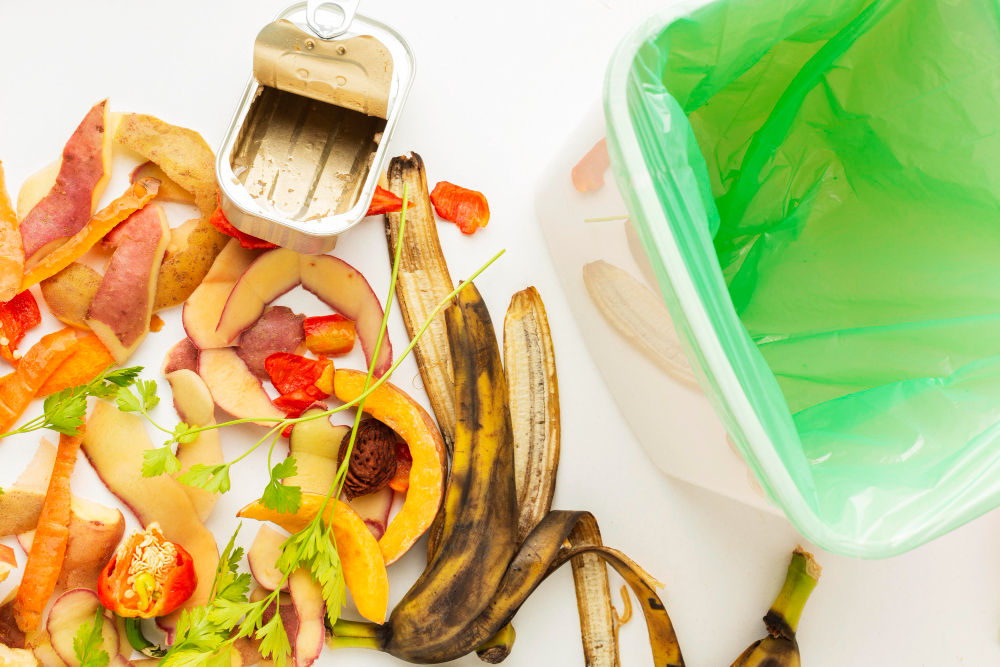
Australians take pride in their gardens. Whether it’s pruning hedges, mowing lawns, or trimming trees, maintaining a healthy outdoor space is part of our everyday life. But once the job’s done, we’re often left with a big pile of organic waste that needs to go somewhere.
Tossing green waste into a general rubbish bin might seem like the easiest option, but this practice causes serious problems for both the environment and your local waste system. Fortunately, there’s a much better way to deal with it and it starts with a green waste skip bin.
What Counts as Green Waste?
Green waste includes biodegradable materials that come from your garden or yard. This covers a wide range of items, such as:
- Grass clippings
- Leaves and weeds
- Tree branches
- Shrubs and hedge trimmings
- Palm fronds
- Garden prunings
- Old plants and flowers
It’s important to know that green waste does not include things like soil, large logs, treated timber, or garden furniture. Mixing in these items can contaminate the load and make it harder to recycle.
Why You Shouldn’t Put Green Waste in General Bins
Many households still toss their green waste into the general red bin. While this might seem harmless, it creates multiple problems at the local and national level.
1. It Ends Up in Landfill
When organic waste ends up in landfill, it breaks down without oxygen. This process releases methane, a greenhouse gas that is far more harmful than carbon dioxide.
2. It Wastes Valuable Resources
Green waste is full of nutrients that can be reused in agriculture, landscaping, and even rehabilitation projects. When thrown into general rubbish, we lose those benefits completely.
3. It Costs You More
Placing heavy garden waste into your general bin fills it up faster and may leave you needing extra pick-ups or a second bin. Councils also face extra sorting and processing costs, which eventually reflect back on ratepayers.
The Smarter Alternative: Hire a Green Waste Skip Bin
Instead of jamming your garden waste into a general bin, consider using a green waste skip bin. It’s the simplest and most responsible way to manage large amounts of outdoor rubbish, especially after a big clean-up.
What Is a Green Waste Skip Bin?
A green waste skip bin is a large, designated bin specifically made for organic yard waste. Unlike general skip bins, this type is reserved only for materials that can be composted or mulched.
When Do You Need a Green Waste Skip Bin?
There are several situations where hiring a green waste skip bin makes perfect sense.
1. Seasonal Garden Clean-Ups
Whether it’s spring pruning or an autumn leaf drop, gardens generate a lot of green waste throughout the year. A skip bin helps you get it all out of the way in one go.
2. Landscaping Projects
Major yard renovations usually involve removing old plants, trimming large trees, or reshaping garden beds. A green waste skip bin gives you the space you need to work without piling debris in the corner.
3. Property Maintenance
If you’re a landlord or property manager, maintaining outdoor spaces is part of the job. Having access to a green waste skip bin keeps things tidy and avoids issues with council bins.
4. Preparing a Property for Sale
First impressions matter. If you’re selling your home, a quick outdoor makeover can boost your property’s street appeal. With a green waste skip bin, you can clear out overgrown areas quickly and cleanly.
What Happens to the Waste After Collection?
After collection, the contents of a green waste skip bin are transported to a dedicated composting facility. There, the organic material goes through several stages:
- Shredding: The waste is broken down into smaller pieces for easier processing.
- Composting: The material is left to decompose in controlled conditions, producing heat that kills off pathogens and seeds.
- Screening and Refining: The end product is filtered and cleaned, creating nutrient-rich compost or mulch.
These finished products are then sold or distributed for use in parks, farms, and landscaping projects.
Environmental Benefits of Using a Green Waste Skip Bin
1. Reduces Landfill Use
Every tonne of green waste that goes into a composting facility means one less tonne sitting in landfill.
2. Lowers Greenhouse Gas Emissions
By composting instead of dumping, we significantly reduce the release of harmful gases into the atmosphere.
3. Supports a Circular Economy
Turning waste into compost creates a closed-loop system. It encourages sustainable farming and reduces the demand for synthetic fertilisers.
How to Choose the Right Green Waste Skip Bin
1. Pick the Right Size
Bins come in a range of sizes, from small 2m³ skips to 10m³ or larger. If unsure, go one size up.
2. Check the Allowed Waste Types
Make sure you understand what can and can’t go in the bin. Most providers offer a clear list of acceptable items.
3. Look for Same-Day or Next-Day Delivery
Some projects can’t wait. Choose a local provider that offers quick delivery and pick-up.
4. Choose a Licensed Provider
Only work with licensed waste companies. Reputable providers ensure your green waste ends up in the right place.
Can You Share a Green Waste Skip Bin?
Yes, and it’s a smart way to save money. Neighbours often pitch in for a shared bin, especially during community clean-up days or after storms.
Common Mistakes to Avoid
- Mixing in general rubbish or household waste
- Adding soil, rocks, or bricks
- Overfilling the bin past the marked line
- Placing the bin on public property without permission
Final Thoughts
Green waste may seem harmless, but how we handle it matters. Throwing it into general rubbish leads to avoidable environmental damage and wastes valuable resources.
By choosing a green waste skip bin, you make a positive impact on both your home and the planet. Whether you’re tidying up after a weekend in the garden or managing a major landscaping project, a green waste skip bin offers the cleanest and most sustainable solution.Need a green waste skip bin? Reach out to your local provider today and see how easy it is to manage your garden waste the right way.







